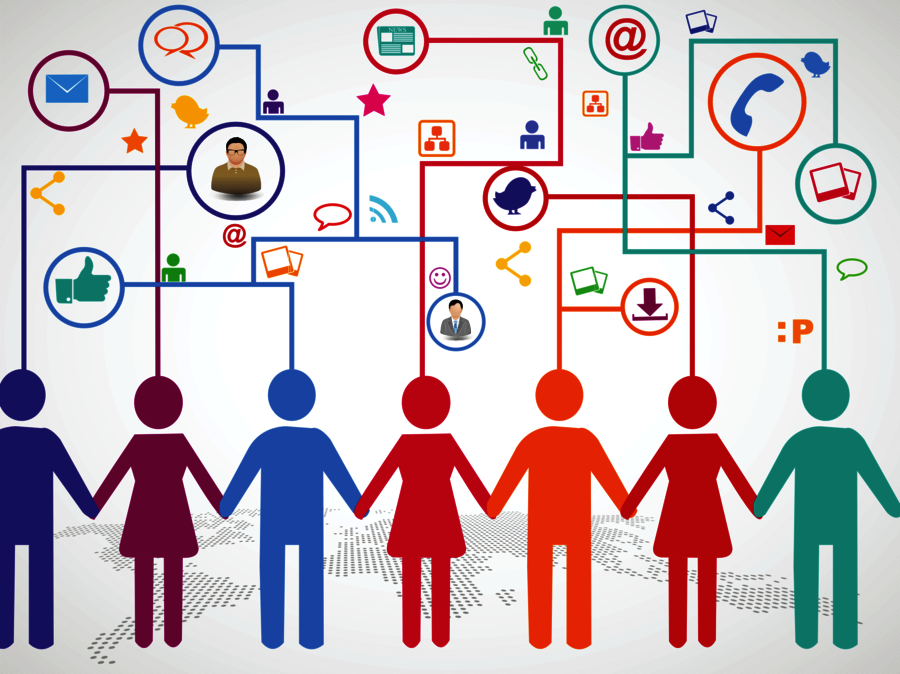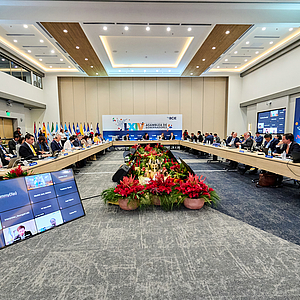Building the Future: Open Knowledge for Social Welfare in the Digital Age Blanca Lilia Ibarra Cadena

In the 21st century, access to information has become a fundamental tool for the progress and social well-being of nations. The relevance of open public knowledge lies not only in the ease with which anyone can obtain useful and quality information, but also in the ability to use such information as a way to meet the needs of individuals and society, thus generating a public good that produces shared value. In this space, we reflect on how technological progress has democratized the also called right to know, and I will list some of the ways in which the governments of Latin America and the Caribbean can improve public policies in this area to promote social well-being.
In the digital era, technological progress has unleashed an unprecedented democratization of access to information. For example, the Digital Report 2023 pointed out that, as of October last year, more than 5.3 billion people in the world (approximately 65.7% of the population) use the Internet, with the main reason for using it being to search for information (60.1%). In this way, information becomes the engine that drives individual and collective well-being, fostering economic competitiveness, investment for innovation and sustainable development, as well as citizen empowerment to participate in democratic processes (elections), better manage emergency situations, and make informed decisions.
Fortunately, a large number of countries in the world (135, according to UNESCO's 2022 Report on Public Access to Information) have recognized the importance of transparency and access to information, adopting legislation and statutory guarantees that highlight the need for independent oversight bodies and mechanisms to ensure their effectiveness and compliance. However, our current juncture, characterized by the advance and penetration of digitalization, confronts us with no lesser challenges that include widening inequality gaps, social polarization and the proliferation of disinformation, fake news, and propaganda. In this context, it is crucial that governments evolve towards an approach where access to information policies go beyond mere legal compliance, to focus on increasing the well-being of society through access, consultation, and use of information. How can this change of route be supported? Here are some pointers:
a. Facilitating the Obtainment of Information: The first step towards open and useful knowledge is to ensure that all sectors of the population have mechanisms to facilitate access to information. The implementation of open source/use licenses emerges as an effective strategy to facilitate the use and reuse of data and information, thus fostering creativity, co- creation processes and innovation throughout society. Likewise, governments must assume a proactive role in providing adequate information that is truly useful and beneficial to society. Doing so avoids long and cumbersome bureaucratic processes to locate valuable information, facilitating informed and efficient decision making.
b. Raising Awareness and Training: Building a solid culture of transparency and access to information requires the active participation and involvement of both the public and private sectors. In both sectors, it is necessary to combine strategies to develop a comprehensive approach that promotes effective awareness and capacity building (as in the case of the National Socialization Plan for the Right of Access to Information, Plan DAI, in México). To this end, it is necessary to combine different actions, with the collaboration of the media and civil society organizations, which may include: the design of campaigns, workshops, seminars aimed at public servants and private sector employees, using case studies that highlight the importance and usefulness of this human right.
c. Media and Information Literacy (AMI for its acronym in Spanish): The World Bank's 2024 Global Risks Report highlighted that misinformation and disinformation emerge as the most serious global risk forecast for the next two years. In this sense, the development of AMI skills represents a cornerstone to ensure a more dependable, secure, and inclusive digital environment, where society can understand and discern information, reducing the spread of rumors and misleading news, as well as the gaps that relegate certain sectors of the population from the benefits of the virtual world.
d. Attention to Vulnerable Sectors: Equity in access to information requires a specific focus on vulnerable sectors of society. This implies leaving behind the logic that regulatory advances only facilitate the work of public officials and moving towards the deployment of instruments and mechanisms that address the specific needs of different groups, from school-age children to women, the elderly, people with disabilities, and Indigenous people.
Author: Blanca Lilia Ibarra Cadena
Communicator, journalist and promoter of development and respect for women's rights. She has held management positions in the media sector, having been Director of the Mexican State Congress Television Channel and Director of Information to State Media of the Presidency of the Republic. She chaired the guarantor bodies of transparency, the right of access to information and the protection of personal data at the municipal and state level. In 2018, the Senate of the Republic elected her Commissioner of the National Institute of Transparency, Access to Information and Protection of Personal Data (INAI). From December 2020 to December 2023, she was president of INAI and of the National Council of the National Transparency System. She is currently a commissioner of the institute.

Write new comment
AIP Relationship Indicators
Learn about the main links we have with different organizations, the performance indicators, and the initiatives we are implementing.
Open knowledge
Learn and disseminate knowledge about access to information, transparency, open data, among other topics, through short articles (blogs).
Focused transparency
Subscribe to receive the information that CABEI discloses periodically and according to your preferences.
News on the implementation of the Policy
Keep up to date with news about the implementation of our Policy.
Upcoming events
Join us for upcoming events and become part of our knowledge network.
Previous activities
Learn about our activities to promote greater transparency and access to information.










Comments (0)
No comments found!